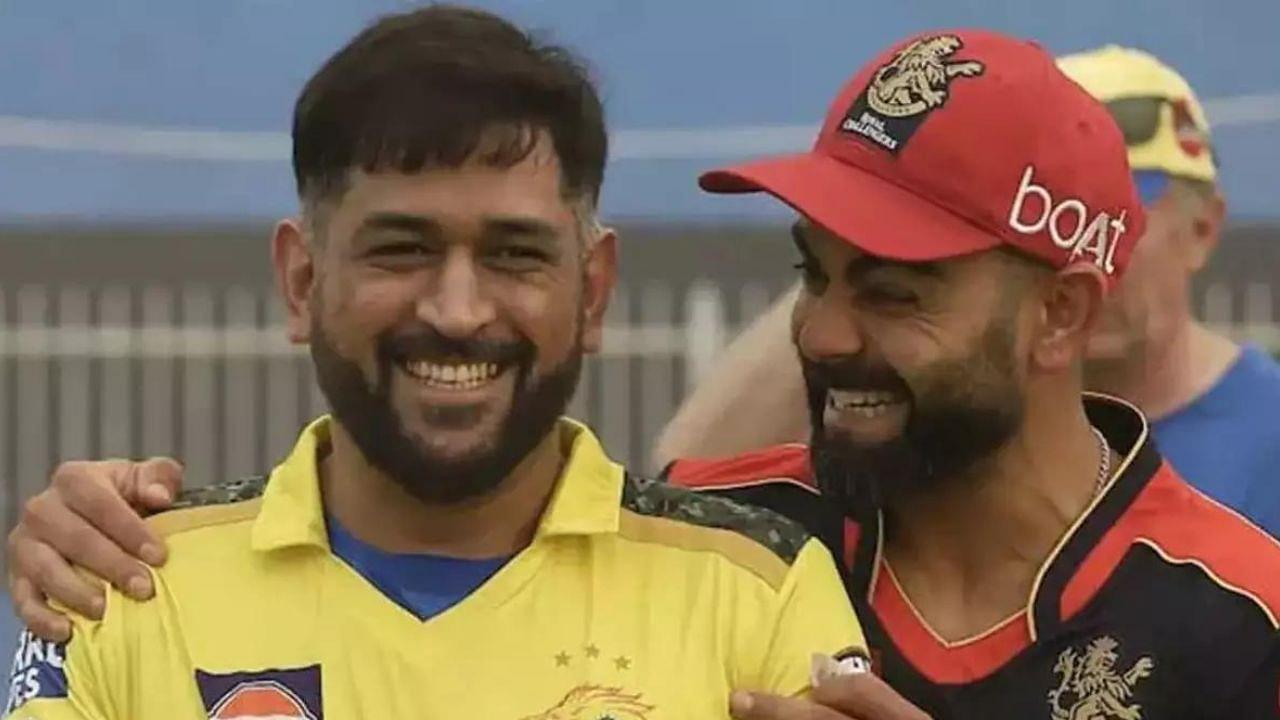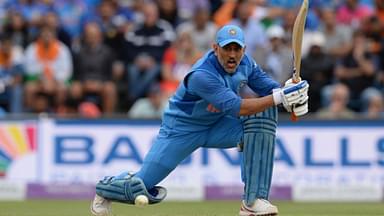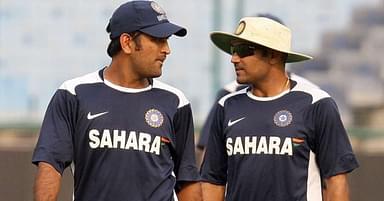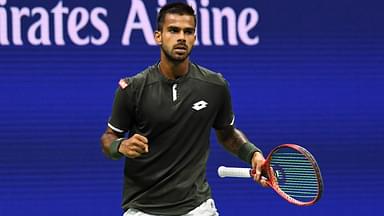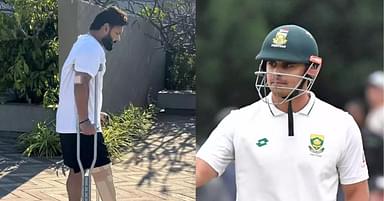Two of the biggest names in Indian Cricket history – Mahendra Singh Dhoni and Virat Kohli have provided their fans countless on-field memories, which they will cherish for the rest of their lives.
Advertisement
Over the years during their playing days together, and even post Dhoni’s retirement from international Cricket in 2019, the bonhomie and camaraderie they share, and mutual respect that the two have for each other may well and truly be compared to the fabled tales of friendship that the world has heard and read since decades.
Together, these two world class batters have batted across 80 innings in all formats in international Cricket. They have piled on 3,090 runs at an average of 47.53, with the help of six century partnerships and 19 half-century stands.
In terms of captaincy, ask an average fan to come up with a few names they could impulsively think of when it comes to Indian Cricket, chances of them naming MS Dhoni and Virat Kohli are right up there, and the stats are there to back their greatness in this facet of the game as well.
Virat Kohli vs MS Dhoni Captaincy Record in ODIs
MS Dhoni has led team India across 200 ODIs from 2007-2018 – the highest for any Indian captain in the history of the format. During these matches, India had won on 110 occasions, lost 74 of them, 5 ended in a tie, while 11 were no results. The total win percentage for Dhoni as captain was 59.52.
Virat Kohli, on the other hand, had a win percentage of 70.43 as India’s ODI captain from 2013-2021. However, he led India across 95 ODIs only, won 65, while lost 27 of them.
Virat Kohli vs MS Dhoni Captaincy Record in T20Is
In this format as well, MS Dhoni has so far led India across maximum matches – 72. With 41 wins and 28 losses, he ended his T20I captaincy career win a win percentage of 59.28.
Kohli, on the other hand, led India across 50 T20Is. With respect to win percentage, he outdoes Dhoni in this format as well. Across these matches involving him as skipper, team India won 30 of them while lost 16, taking Kohli’s win percentage to 64.58.
Virat Kohli vs MS Dhoni Captaincy Record in Tests
As far as the Test format is concerned, there is only one clear winner – Virat Kohli.
He has not only led team India across 68 Tests – the highest-ever by an Indian, but has as better win percentage (58.82) than Dhoni (45), despite the latter having skippered 60 Tests for team India.
While team India has won 40 Tests under Kohli’s captaincy (and lost 17), Dhoni led team India to victory across mere 27 Tests (and lost 18).
In fact, on the basis of numbers, Kohli is unarguably the most successful captain team India has ever played under in the Test format.
Who is a Better Captain Between Kohli and Dhoni?
Even on the basis of the aforementioned numbers across all formats, one cannot choose a clear winner between the two. While Kohli has a better win percentage than Dhoni in the ODIs and T20Is as well, one would also have to take into consideration that the latter has a bigger sample size with respect to number of matches played.
Also, Dhoni has led team India to three ICC tournament titles (two World Cups and a Champions Trophy), while Kohli couldn’t win any during his captaincy tenure. Taking into consideration how much significance is attached to World Cups in this sport, can greatness be measured without factoring in one’s ability to be No.1 by getting the better of top sides in a single tournament?
Also, Dhoni’s stature as a captain further grows when one looks at his IPL and now-defunct Champions League T20 trophy cabinet. While he has led CSK to four IPL titles and a couple of Champions League T20 titles as well, Kohli has retired as RCB’s skipper without a single of them to boast of.
Having said all of it, ascertaining a better captain or even measuring greatness between/amongst individuals cannot simply be a result of quantitative analysis.
The answer to ‘Who’s the better captain’ between the two should also take into factor the people’s perception, the fact that certain format or even match/series results’ importance outweighs other(s) differently for different people. Also, the positive influence that these two individuals have had on people’s lives (including the cricketers) with respect to leadership (which comprises off-the-field man-management skills as well), it might well be unfair to just pick one of the two names.

